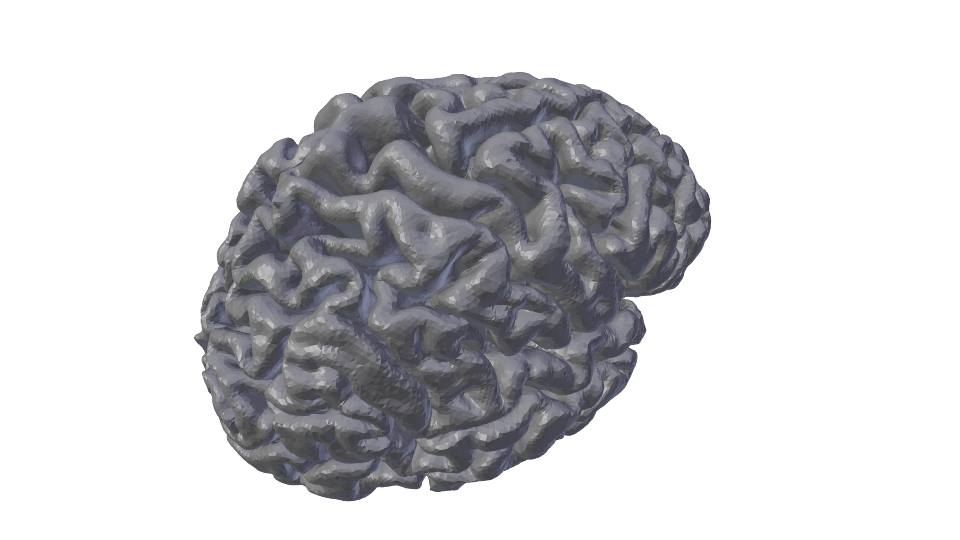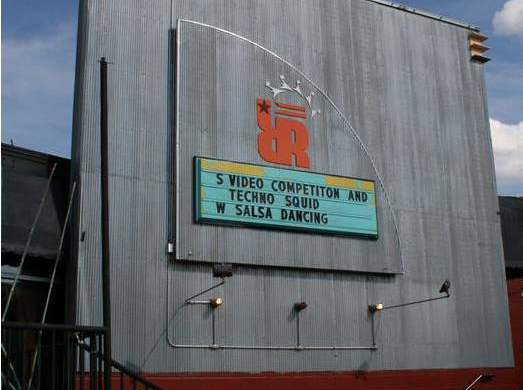Hello, true believers, and welcome to the new, MORE FLAVORFUL Biscuit Quarterly. It’s been a long time since any of us here at TSEP World Headquarters have tickled your funny bone, regaled you with tales of Brave Ulysses, or told you a pornographic joke involving tessellated dodecahedrons. In the long dark years since our premature break-up during Boston atmosphere re-entry, a megacrapton of things have happened, and we thought it might be polite to tell you about some of them, and probably to omit a whole lot of it. This is my version of what’s been happening since 1995.

You might recall that TSEP was cruising along the Fame-and-Fortune Freeway back in 1995. Opening for big-name acts, maybe not the top-of-the line, super-famous-now ones, but certainly respectable ones. Industry people knew our names. We were on the cusp of something big, everyone knew it, and it seemed inevitable. My mother had passed away in 1994 at the young age of 45 – which I still can’t imagine, especially since I am older than that now. With both my parents gone at that point, Little Rock seemed a lot to me like the moment Luke Skywalker discovered his relatives burned to a crisp – there was really very little reason to return there (although years of therapy and the benefit of hindsight has helped me greatly regret many things I left behind in LR, so I’ve got that going for me).

In June of 1995, I dropped out of school (UALR) and resigned from an internship I had not yet begun (and which was quite hard to land in the first place). In July, I got married. In August, my new wife and I, Aaron, and Clay (as well as a cast of other true believers who had also quit their jobs to come support us) loaded all our worldly possessions into trucks and headed to Boston. That was the town that had won our collective hearts; there was a Polygram Records branch there, and plenty of places that relished original music; it was a logical place to which an aspiring band should relocate.
The School of Hard Knocks began its tuition almost immediately. First of all, without a drummer, we had no way to play gigs and earn money playing music. Then there was the crippling cost of living. For comparison, the entire band had a HUGE house on Dennison in LR that was not only large enough for us all to live in, but we could rehearse there, too, and even host pretty excellent album release parties there (never mind the fact that there was a hole in the bathroom floor big enough for Peter Dinklage to fit through such that we could wave at our neighbors below) – and that rent was $450 a month. A modest apartment that would be good for one human or a dozen mutant sardines was, like, $900 a month. Our expenses had exploded exponentially. Costs were up. Sales were down. Shit looked really bad, and on several occasions we thought about packing it in and getting the hell out of Dodge. Some did.
Well, Melissa (my wife) and I decided to stick it out, even after Clay left town – it was just Aaron and I who stayed in Boston. But something inside me was totally broken: I had put all my eggs in the TSEP basket, and when we decided we could not go on, it was painful in the same way that losing my mother was. It was a profound, crippling, existential sense of loss that meant that my life was over as I had known it. I wanted to play music again, but after making repeated failed attempts at getting back in a groove, I knew that music wasn’t an option for me any longer. I had to reinvent myself, or at least re-find myself in this new, strange land.
Remember that gig we played for free to support Amnesty International? The one where all our gear, cash, and groceries got stolen in super-duper safe Charlestown? One good thing that came out of that nightmare was that I met a guy at the Comm Ave Guitar Center named Pat. He helped hook TSEP with loaner instruments so that we could play our show. When we moved to Boston, he was one of the first people I looked up, and before long, he had helped get me hired at GC. To this day, Pat and his family are part of my own extended family. We would not have survived that first year without them.
Guitar Center itself was a nightmare – I only worked there for about four months, which still seem like an eternity. Having come from a mom-and-pop music shop that valued customers above profit, it was a stark change. There was an implicit hierarchy among the otherwise flat sales organization, and an explicit hierarchy of guys scrambling up the corporate ladder. Pay was commission based, which led to sales people “snaking” each other all the time, and bad behavior was often condoned, or at least not punished. A sale is a sale, after all. I couldn’t stomach it and started looking for a different job; but since GC was metastasizing over the entire Boston area, consuming hundreds-year-old music stores and mom-and-pop shops at an exponential rate (even by selling gear below cost, simply to starve out the competition!) it was pretty clear I could not go back into music retail.

As a kid, I had been a computer nerd – I started writing programs (badly, as I still do) on a Commodore VIC-20, which had a minuscule 3k of RAM (much of which was taken up by the BASIC interpreter). During my tenure at Boyd Music, I had been reintroduced to computers through a combination of working in desktop publishing for the store’s newsletter and experimenting with a couple old IBM XT computers donated to me by the store’s tech guru, Bobby Lincoln. I knew a fair bit about Windows, MS-DOS, and PCs in general. That bit of knowledge allowed me to get a job at Kinko’s (now called FedEx Office) in Copley Square. I was hired to manage the IBM PC rentals in the computer services department – basically, where folks would come in and rent time on a computer (because believe it or not, back then, not everyone had a computer!). Several of the existing staff in that department knew how to manage the Macintosh computers, but were terrified of the awkward MS-DOS interface that WordPerfect and Microsoft Word used at the time. I had no issue with either, so that was my gig.
After several months of working there, a combination of anxiety and the stress from working with clients from the surrounding legal firms, high-power corporations, and other type-A organizations had me looking for another change. I sent out a dozen resumes, including one shot in the dark sent to MIT. After a couple weeks, I had callbacks from all applications except one – MIT. I had learned how to deliver instructor-led classes for corporate training through some consulting I did with CompUSA, and interviewed at a company called New Horizons. They were part of the new, burgeoning wave of continuing tech education that resulted from tech companies having a surplus of funds and nice educational benefits for employees. It sounded like a job with great potential for career growth and tons of money, so I signed up. My first class was teaching PowerPoint.
Things were going well at New Horizons. The pay was vastly better than anything I had ever made before (though I was still making less than $20k a year, and our rent was $1150 a month… so not exactly living high on the hog). Almost a month after starting, I got a phone call.
Hi, I’m calling from the MIT Laboratory for Computer Science. We just got your resume and would like you to come in for an interview.
Long story short, almost six months after I had sent out a batch of resumes, and a month after starting what I figured would end up being the rest of my career, I gave my notice, and started my first job at MIT. With the exception of a couple years I went on a failed career adventure, I’ve been here since. In that time, I’ve gotten to work on a lot of interesting things – most notably robotics and neuroimaging. I’ve also worked on a lot of far less glamorous things. Along the way, I wrote several books on a topic most normal people have never heard of, did a lot of creation of courses that I taught at Northeastern University, and have gotten to learn almost constantly from the unending stream of new tech that saturates Kendall Square.

Most notably, Melissa and I have two kids (both teenagers, at the time of writing) who are the biggest surprises in my life. They are awesome people. Neither of them like when I post pictures of them online, so I’ll spare them that.
In 2008, TSEP did a reunion show in Little Rock. I hadn’t really picked up my bass since 1995, so I had to teach myself to play again. Listening to the old TSEP tracks, I could not figure out how I had played certain pieces. Even though I had played each song a million times, all that muscle memory had been lost to the ages. After a couple days of rehearsal with the band (and fighting through the pain of a wrenched back – ah, age) we played the “triumphant return” gig. There were a few familiar faces in the crowd I was happy to see. Overall, it felt a lot like a Spinal Tap moment.

Fast-forward to 2015 – two decades after the band broke up. Aaron spearheaded an effort to record a new album’s worth of old material. We didn’t know if we could do it – two of us live on opposite coasts, and two in Little Rock. However, the technology in 2015 so vastly outstrips anything we would have dreamed possible back in 1995, and the album “We’re Back… What Did We Miss?” is a testament to the possibility of recording and releasing an album from anywhere dispersed on the face of the Earth.
There’s something so liberating about being able to make music without the slightest concern about what a record label thinks about it, or whether it is going to get airtime on college radio, or if there will be enough ads running to promote it – the real gift of coming back together with the accumulated wisdom of decades is that you can do it the way that you meant for it to be in the first place. That’s exactly why I’m dusting off the bass – and maybe some other instruments, too – and look forward to giving you something to listen to, true believer.